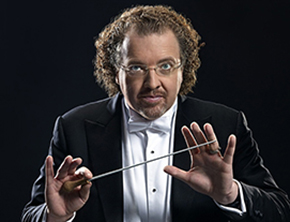by Daniel Hathaway
HAPPENING TODAY:

Also tonight at 7:30, the next-to-last event of the Cooper International Violin Competition is an Honors Recital featuring outstanding performances selected from the first three days of competition. It’s live in Oberlin’s Warner Concert but you can log into webcasts at oberlin.edu and The Violin Channel.
For details of upcoming events, visit our Concert Listings.
ANNOUNCEMENTS:
The Cooper Violin Competition announced this morning on Facebook: “Last night, Thomas and Evon Cooper joined the judges in congratulating participants and presented awards at the conclusion of round two of the competition. Receiving awards and congratulations were Jinan Laurentia Woo (4th place), Emrik Revermann (5th place and audience prize), and Lauren Yoon (6th place). Continuing to the Concerto Finals are Julia Xiaozhuo Wang, Edna Unseld, and Tiantian Lu.” The final round takes place on Friday at 7:30 in Oberlin’s Finney Chapel with the Columbus Pro Musica Chamber Orchestra.
The Cleveland Orchestra has announced that violinist Augustin Hadelich will step in for Hilary Hahn in concerts at Severance Music Center from January 16-18. Hahn continues to recover from injuries sustained last summer. Hadelich will be featured in the Brahms concerto, and Witold Lutosławski’s Concerto for Orchestra will be led by the previously announced conductor Elim Chan.
TODAY’S ALMANAC:
Two birthdates to celebrate: On January 9, 1839, American composer and academic John Knowles Paine was born in Portland, Maine, and longtime Metropolitan Opera administrator Rudolph Bing made his debut in 1902 in Vienna). Bing was famous for his tiffs with singers — he fired Maria Callas in 1968, and joked that considering his ongoing squabbles with dramatic soprano Helen Traubel, he should have named his autobiography Nobody Knows the Traubels I’ve Seen — rather than 5000 Nights at the Opera.
January 9 also witnessed the first performances of a number of noteworthy works: Richard Strauss’ Death and Transfiguration, (NY Philharmonic, 1892). Debussy’s Estampes and Gaspard de la nuit (Spanish pianist Ricardo Vines, Paris, 1904 and 1909), Schoenberg’s String Quartet No. 4 (the Kolisch Quartet in Los Angeles, 1937), Bela Bartók’s Rhapsody in two movements (clarinetist Benny Goodman, violinist Joseph Szigeti, and Bartók at the piano, New York, 1937), Roger Sessions’ Symphony No. 2 (1947 by Pierre Monteaux and the San Francisco Symphony), Kurt Weill’s opera Street Scene (1947 in New York’s Adelphi Theater), and Walter Piston’s Symphony No. 3 (1948 by Koussevitsky and the Boston Symphony).
The Piston Symphony won the Pulitzer Prize for 1948, but is rarely performed today. That brings up the subject of prizes in general, and the shelf life of musical works after their first performances specifically. Here’s a history of the Pulitzer awards and a list of winners since the musical category was added in 1943. Which composers have been over-recognized during those years and which have been excluded from consideration? How many of the pieces that won awards are still being performed?



